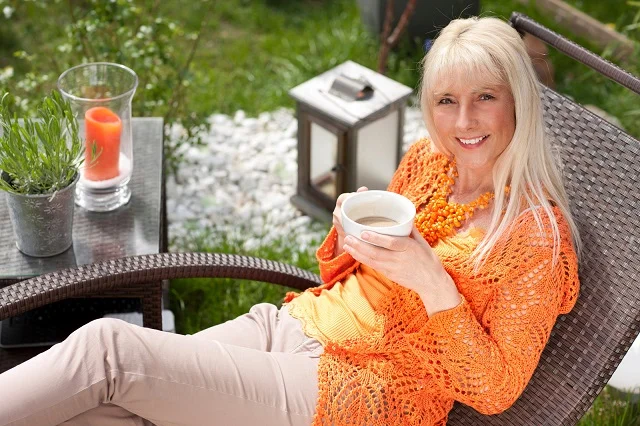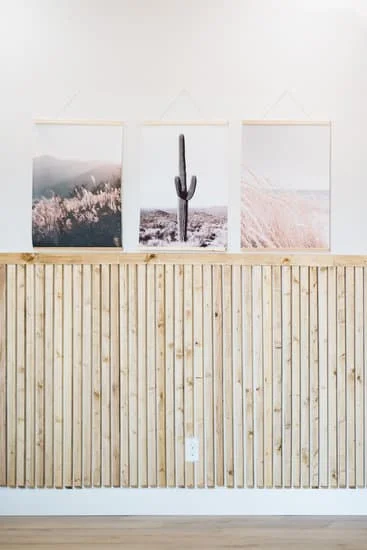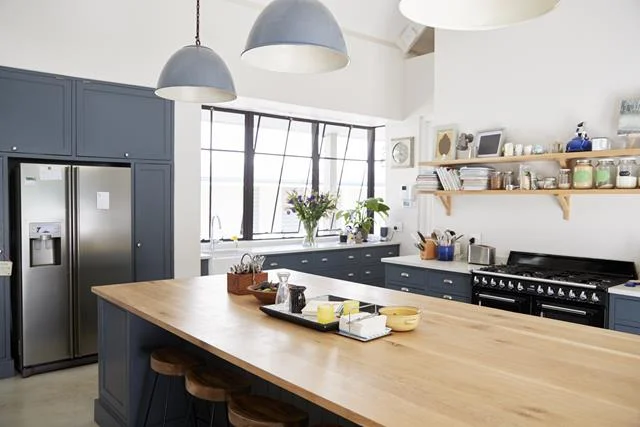Cake decoration is not just for professional bakers anymore. With a little practice and creativity, anyone can try their hand at beautifying cakes right in the comfort of their own kitchen. Whether you’re a seasoned baker looking to take your skills to the next level or a beginner eager to explore the world of cake decoration, this article will guide you through all the steps and techniques you need to know.
Decorating a cake at home allows you to add a personal touch and showcase your unique style. It’s a way to transform a simple baked creation into a work of art, making any occasion more special and memorable. From birthdays and anniversaries to holidays and celebrations, a beautifully decorated cake becomes the centerpiece that brings joy and happiness to everyone.
Before diving into the exciting world of cake decoration, it’s essential to understand the basics and gather the necessary tools. This includes everything from rolling pins and piping bags to offset spatulas and turntables. Once equipped with these essentials, you’ll be ready to embark on a journey of unleashing your creativity through various designs, themes, icing techniques, decorative elements, and finishing touches.
So get ready to embark on an adventure filled with buttercream frostings, fondant sculptures, edible glitters, intricate piping designs, picture-perfect borders, writing accents, and more. In this article, we will walk you through step-by-step guides for preparing the perfect cake base for decorating while troubleshooting common challenges along the way.
By embracing this art form at home, you will find immense joy and satisfaction in creating stunning cake decorations that are sure to impress family and friends alike.
The Art of Cake Decoration
Cake decoration is not just about making a cake look visually appealing; it is an art form that allows bakers to showcase their creativity and express themselves. Understanding the basics of cake decoration and having the right tools are crucial for achieving stunning results. In this section, we will delve into the art of cake decoration, covering the essential basics and tools needed to embark on this creative journey.
To begin with, let’s discuss some fundamental concepts in cake decoration. One important aspect is understanding color theory and using it effectively in your designs. The color palette you choose can greatly impact the overall look and feel of your cake. Consider using complementary colors for a harmonious look or contrasting colors for a bold statement.
Next, let’s talk about the essential tools for cake decoration. A good quality turntable is an absolute must-have as it allows you to rotate the cake smoothly while working on different angles. A set of offset spatulas in various sizes are invaluable for spreading buttercream, smoothing surfaces, and creating decorative patterns.
Piping bags and tips are essential for creating intricate designs with buttercream or royal icing. Cake decorating brushes, fondant smoothers, and rolling pins are also handy tools to have in your arsenal.
In addition to these basic tools, there are some specialty tools that can take your cake decoration skills to the next level. These include flower nail sets for creating delicate sugar flowers, impression mats for adding patterns and textures to fondant, and airbrushing kits for achieving vibrant gradients or shading effects.
Remember that practice makes perfect when it comes to cake decoration. Don’t be discouraged if your first attempts don’t turn out exactly as planned – keep experimenting and honing your skills with each new creation. With dedication, patience, and a desire to learn, you will soon be able to create beautiful works of art through cake decoration.
To summarize:
- Understand color theory and how it applies to cake decoration.
- Invest in essential tools such as a turntable, offset spatulas, piping bags, and tips.
- Consider specialty tools like flower nail sets, impression mats, and airbrushing kits for advanced techniques.
By understanding the basics of cake decoration and having the right tools at your disposal, you can embark on a creative journey that will bring joy and satisfaction to both yourself and those who have the pleasure of enjoying your edible masterpieces.
Step-by-Step Guide
When it comes to cake decoration, having a perfect base is crucial for achieving professional-looking results. Whether you’re using a boxed mix or making your cake from scratch, following a step-by-step guide will ensure that your cake is not only delicious but also ready for the next stage of decorating.
- Gather Your Ingredients: Before you start baking, make sure you have all the necessary ingredients on hand. This includes measuring out the appropriate amount of flour, sugar, butter, eggs, and any additional flavorings or extracts you might be using.
- Prepare Your Cake Pans: The type and size of your cake pans will determine the final shape and size of your cake. Use parchment paper or non-stick spray to prepare the pans, ensuring that the cake easily releases once baked.
- Mixing the Batter: Follow your recipe instructions for mixing the batter. Typically, this involves creaming together butter and sugar until light and fluffy before adding in the eggs one at a time. Slowly incorporate dry ingredients alternately with wet ingredients while mixing on low speed until just combined.
- Baking Your Cake: Preheat your oven to the recommended temperature stated in your recipe and bake for the specified amount of time. Be sure to rotate your pans halfway through baking to ensure even cooking.
- Testing for Doneness: To check if your cake is done, insert a toothpick into the center of the cake; if it comes out clean or with a few crumbs clinging to it, then it’s done. Remove from oven and let cool in pan for 10 minutes before transferring to a wire rack to cool completely.
Once you’ve mastered preparing the perfect cake base for decorating by following this step-by-step guide, you’ll be ready to move on with creating stunning designs and themes that will amaze everyone who sees them.
Unleashing Your Creativity
Cake Design Ideas
When it comes to cake decoration, the possibilities are endless. One of the most exciting aspects of decorating cakes at home is being able to unleash your creativity and explore different design ideas. Whether you prefer a classic and elegant look or a fun and whimsical theme, there are design ideas to suit every occasion. Here are some popular design ideas to get you started:
- Floral Designs: Flowers are a timeless choice for cake decoration as they add a touch of elegance and beauty to any cake. You can create realistic sugar flowers using gum paste or opt for edible fresh flowers as toppings.
- Geometric Patterns: If you’re aiming for a modern and minimalist look, geometric patterns are a great choice. From simple shapes like squares and triangles to more intricate designs such as chevron or herringbone, these patterns can be achieved using fondant or icing stencils.
- Novelty and Themed Cakes: For special occasions like birthdays or anniversaries, themed cakes never fail to impress. Whether it’s a superhero-themed cake for your little one or an elegant wedding cake with intricate details, let your imagination run wild.
Theme Ideas
Apart from the specific design elements, themes can also play a significant role in cake decoration. A well-chosen theme can tie all the decorative elements together and create a cohesive look. Here are some popular theme ideas that you can consider:
- Seasonal Themes: Embrace the beauty of nature by incorporating seasonal themes into your cake decorations. From vibrant fall leaves to delicate spring blossoms, these themes can add a touch of freshness and uniqueness to your creations.
- Nautical Themes: Perfect for beach parties or summer gatherings, nautical themes are always a hit. Create waves with blue ombre icing or adorn your cake with sailboat-shaped fondant cut-outs.
- Fairytale Themes: Bring enchantment and magic to your cakes with fairytale-inspired themes. From castles and princesses to unicorns and rainbows, these whimsical designs are sure to impress both children and adults alike.
Customization
One of the best things about cake decoration at home is the ability to personalize your creations. Whether you’re making a cake for a loved one’s birthday or a special occasion, adding a personal touch can make it even more meaningful. Consider incorporating elements like their favorite colors, hobbies, or interests into the design. Customization not only makes the cake more special but also showcases your thoughtfulness and creativity as a cake decorator.
Remember, experimenting with different design ideas and themes is all part of the fun. Don’t be afraid to try new techniques or combine different styles to create unique looks that reflect your personality or the occasion you’re celebrating.
With these design and theme ideas in mind, you’re now ready to embark on your cake decoration journey and create beautiful and memorable masterpieces from the comfort of your own home.
Mastering the Icing Techniques
When it comes to cake decoration, mastering the art of icing is essential. The type of icing you use can make all the difference in achieving a smooth and flawless finish or creating intricate designs with piping skills. In this section, we will explore different icing techniques that will take your cake decoration to the next level.
One of the most common types of icing used in cake decoration is buttercream. Buttercream is made from a mixture of butter, powdered sugar, and flavorings. It has a creamy texture that is easy to work with and can be flavored and colored according to your preference.
To achieve a smooth and flawless finish with buttercream, it’s important to start with a crumb coat. This involves applying a thin layer of icing all over the cake to lock in any loose crumbs. Once the crumb coat has set, you can apply a thicker layer of buttercream for a smooth and even finish.
Piping skills are another important aspect of mastering icing techniques. Piping involves using a piping bag fitted with various tips to create intricate designs on your cake. There are different types of tips that can create different effects such as rosettes, shells, leaves, or even writing on the cake.
Practice is key when it comes to piping skills, so don’t be discouraged if your first attempts aren’t perfect. Start by practicing basic shapes and gradually work your way up to more complex designs. Remember to apply consistent pressure when squeezing the piping bag for an even flow of icing.
With these icing techniques mastered, you’ll have endless possibilities for creative designs on your cakes. Whether you want to create delicate floral patterns or bold geometric shapes, practicing these techniques will help you elevate your cake decoration skills and impress your friends and family with your beautiful creations.
Adding the WOW Element
When it comes to cake decoration, incorporating special elements can truly make your creation stand out. One popular way to add a wow factor to your cakes is by using fondant. Fondant is a smooth and pliable icing that can be rolled out and draped over your cake to create a flawless finish. It gives you the opportunity to create intricate designs, shapes, and textures that are difficult to achieve with other types of icing.
Another way to elevate your cake decoration is by using edible glitters. Edible glitters are available in a wide range of colors and add a touch of shimmer and sparkle to your cakes. They can be applied directly onto frosting or used to accent specific design elements on your cake.
In addition to fondant and edible glitters, there are many other decorative elements you can use to enhance the overall look of your cake. These include edible flowers, shaped sprinkles, sugar pearls, chocolate decorations, and more. By combining different decorative elements, you can create a unique and visually stunning cake that will impress everyone who sees it.
| Decorative Element | Description |
|---|---|
| Fondant | A smooth and pliable icing that can be rolled out and draped over cakes for a flawless finish. |
| Edible Glitters | Available in various colors, they add shimmer and sparkle to cakes when applied onto frosting or as accents. |
| Edible Flowers | Natural flowers that are safe to eat and can be used to decorate cakes, providing a beautiful and delicate touch. |
| Shaped Sprinkles | Small, colorful sugar shapes in various designs that can be sprinkled onto cakes for added visual appeal. |
| Sugar Pearls | Tiny pearl-like sugar balls that can be used as decorative accents to add elegance and texture to cakes. |
| Chocolate Decorations | Made from melted chocolate, they can be molded into various shapes and designs to adorn cakes. |
By incorporating these wow elements into your cake decoration, you can take your creations to the next level and impress everyone with your artistic skills. Experiment with different combinations and techniques to create unique masterpieces that will leave a lasting impression on anyone who sees or tastes them. Remember, the key is to have fun and let your creativity shine through.
Finishing Touches
Creating Beautiful Cake Borders
When it comes to cake decoration, the finishing touches are often what make the cake truly stand out. One essential element to master is creating beautiful cake borders. Not only do borders provide a polished and professional look to your cake, but they can also help hide any imperfections in your icing or cake layers.
To create a clean and flawless border, start by ensuring that your cake has been well chilled. This will allow the icing to set and make it easier to work with. Using either a piping bag fitted with a small round tip or a plastic squeeze bottle, pipe a line of icing along the base of the cake. Slowly move your hand in an even motion, applying gentle pressure to create a consistent border.
There are many different styles of borders you can choose from, depending on the overall theme and design of your cake. Some popular options include simple dots, scallops, zigzags, shells, or braided patterns. Experiment with different techniques and find one that suits your style.
Writing Personalized Messages
Another way to add a personal touch to your decorated cake is by writing personalized messages. Whether it’s for a birthday celebration or an anniversary, adding a thoughtful message can make the recipient feel extra special.
To write on a cake, you can use either buttercream icing or royal icing. Fill a small piping bag fitted with a thin round tip with your chosen icing and practice piping on parchment paper before moving onto the cake. Start by lightly pressing the tip onto the surface of the cake and gently squeezing out the desired amount of icing while carefully forming each letter.
Remember to keep your hand steady and apply even pressure when piping letters. If you’re not confident about writing directly on the cake, you can create templates using stencils or trace out letters in advance using toothpicks as guides.
Embellishing with Edible Decorations
To truly elevate your cake decoration, consider adding edible embellishments. These can help enhance the overall theme or design of your cake and add a touch of elegance or whimsy.
Edible decorations can include flowers made out of gum paste or fondant, chocolate curls, sprinkles, candies, or even fresh fruit. Depending on the style you’re going for, you can choose to apply them sparingly for a more minimalist look or go all out with a lavish display.
For delicate decorations like gum paste flowers, it’s important to let them dry completely before placing them on the cake. You can use floral wire or toothpicks as supports to add dimension and stability.
Remember that less is often more when it comes to decorations. Be strategic in your placement and make sure they complement the overall design without overwhelming it. Finally, have fun experimenting with different embellishments to create stunning and unique cakes that will impress everyone who sees them.
Trouble-shooting
Cake decoration can be a fun and creative process, but it’s not always without its challenges. In this section, we will explore some common cake decoration challenges that you may encounter and provide solutions to help you overcome them.
One common challenge in cake decoration is achieving a smooth and flawless buttercream finish. Sometimes, air bubbles or crumbs can appear on the surface of the buttercream, ruining the overall look of the cake. To solve this issue, it is important to start with a well-chilled cake and to apply a thin layer of buttercream as a “crumb coat”.
This first layer helps to seal in any crumbs and create a smooth base for the final coat of buttercream. After applying the crumb coat, refrigerate the cake for about 30 minutes before applying the final layer of buttercream.
Another challenge that often arises is creating intricate piping designs. Piping requires precision and control, which can be difficult for beginners. One solution is to practice piping on a flat surface or parchment paper before moving on to your cake. This will allow you to get comfortable with different piping tips and techniques without worrying about messing up your finished cake. Additionally, using stiffer icing consistency can make it easier to control your piping.
A common problem when working with fondant is cracking or tearing when covering the cake. To prevent this from happening, make sure your fondant is rolled out evenly and is not too thick or too thin.
It’s also helpful to cover your cake with a thin layer of buttercream or ganache before applying the fondant as this creates a smooth surface for the fondant to adhere to. If you do experience cracking or tearing, gently rub the affected area with shortening or water while smoothing out any wrinkles.
| Challenge | Solution |
|---|---|
| Smooth and flawless buttercream finish | Start with a well-chilled cake, apply a thin crumb coat, refrigerate before final layer |
| Intricate piping designs | Practice on a flat surface or parchment paper, use stiffer icing consistency |
| Cracking or tearing fondant | Roll out evenly, cover the cake with a thin layer of buttercream or ganache, smooth out wrinkles with shortening or water |
Showcasing Your Masterpiece
Once you have completed the process of decorating your cake, it’s time to capture the beauty and creativity of your masterpiece in a photograph. In this section, we will discuss some helpful tips for capturing Instagram-worthy photos of your decorated cakes.
First and foremost, lighting is key when it comes to taking stunning cake photos. Natural light is often the best option, so try to position your cake near a window or in a well-lit area. Avoid using flash as it can create harsh shadows or reflections on your cake.
Next, consider the composition of your photo. Experiment with different angles and perspectives to find the most flattering view of your cake. You may want to take close-up shots to highlight intricate details, or step back for a wider shot that showcases the entire cake. Don’t be afraid to get creative and play around with different props or backgrounds that complement the theme or design of your cake.
Another important aspect to consider is styling and presentation. Take some time to arrange your cake in an aesthetically pleasing way before taking the photo. Use decorative plates or stands, add some fresh flowers or fruits as garnish, or even include some baking tools or ingredients in the background for added visual interest.
Lastly, editing can make a significant difference in enhancing the overall look of your cake photo. There are many free photo editing apps available that can help you adjust lighting, contrast, saturation, and other elements to make your image pop. Remember not to overdo it – aim for a natural and vibrant look that accurately represents the colors and textures of your decorated cake.
With these tips in mind, you’ll be able to capture beautiful pictures of your homemade decorated cakes that are sure to impress on social media platforms like Instagram. Remember to have fun throughout the entire process – from baking and decorating to photographing and sharing – and embrace the joy and satisfaction that comes from creating stunning edible works of art right at home.
Conclusion
In conclusion, cake decoration at home is a must-try for every baking enthusiast. Not only does it allow you to tap into your creativity and unleash beautiful designs, but it also brings immense joy and satisfaction. By understanding the basics and acquiring the essential tools needed, you can embark on a journey of creating stunning cake decorations from the comfort of your own home.
Throughout this article, we have explored various aspects of cake decoration. We began with the art of cake decoration, learning about the basics and essential tools required to start. Then, we delved into a step-by-step guide on preparing the perfect cake base for decorating. From there, we discovered different design and theme ideas that can inspire our creativity.
Next, we focused on mastering icing techniques, including achieving smooth buttercream finishes and intricate piping skills. To take our decorations to the next level, we learned how to incorporate fondant, edible glitters, and other decorative elements that add a wow factor to our cakes. Additionally, we discussed perfecting cake borders, writing, and embellishments for those finishing touches that elevate our creations.
It’s important to note that cake decoration does come with its fair share of challenges. From cracked fondant to uneven icing consistency, troubleshooting these issues is all part of the learning process. By being aware of common challenges and their solutions, you can overcome any obstacles that may arise during your decorating journey.
Finally, as you master the art of cake decoration at home, it’s also important to showcase your masterpieces in a visually appealing way. Capturing Instagram-worthy photos of your decorated cakes allows you to share your creations with others and build a community around your passion.
Frequently Asked Questions
What can I use to decorate a cake at home?
When decorating a cake at home, there are various tools and materials that can be used. One popular option is icing or frosting, which comes in different colors and can be applied using a piping bag or spatula to create designs, patterns, or smooth finishes on the cake’s surface. Additionally, edible glitter, sprinkles, and decorative sugar pearls can be used to add sparkle and texture to the cake.
Fondant is another common decorating medium that can be rolled out and draped over the cake for a smooth, polished appearance. It can also be shaped into various figures or cut-outs for more intricate designs. Finally, fresh fruits, flowers, or chocolate shavings can be used as simple yet elegant decorations that enhance both the taste and visual appeal of the cake.
What is the easiest way to decorate a cake?
The easiest way to decorate a cake is to use pre-made decorations or store-bought cake decorating kits. These kits often contain pre-shaped fondant decorations or edible images that adhere easily to the surface of the cake with minimal effort required.
Another easy method is using stencils to create patterns or designs on the top of the cake by dusting powdered sugar or cocoa powder over them. This technique allows for quick and impressive results without much skill or specialized tools needed.
What are the steps in cake decoration?
The steps in cake decoration may vary depending on personal preferences and desired outcomes; however, there are some general guidelines that can be followed. First, it is important to ensure that the cake has completely cooled before starting any decorating process to avoid melting any frostings or icings onto warm surfaces. Next, crumb coat the cake using a thin layer of frosting to catch any loose crumbs and provide a smooth base layer for further decoration.
Once this is done, apply additional frosting as desired using a spatula or piping bag while being creative with different techniques like rosettes, borders, or writing messages on top of the cake using icing bags with different nozzle sizes for specific effects. Finally, add any additional decorations like sprinkles, fondant cut-outs, or edible flowers to complete the desired look of the cake.

Hello, lovely readers! I’m Sheila Collins, and I’m delighted to be your trusted guide on this exciting journey of home improvement, design, and lifestyle. As the founder and editor-in-chief of Home Guide Blog, I’m passionate about all things related to homes, and I’m here to share my knowledge, experiences, and insights with you.





